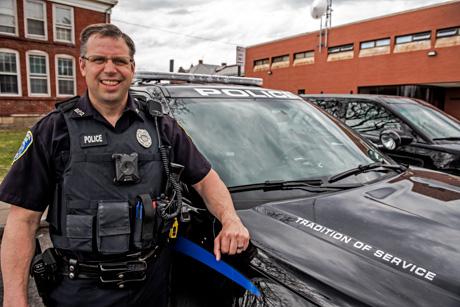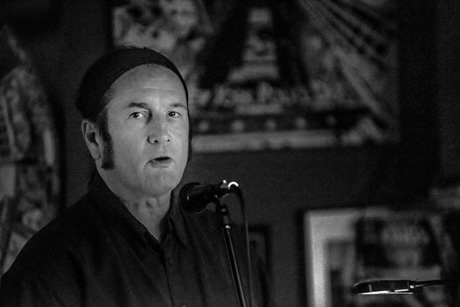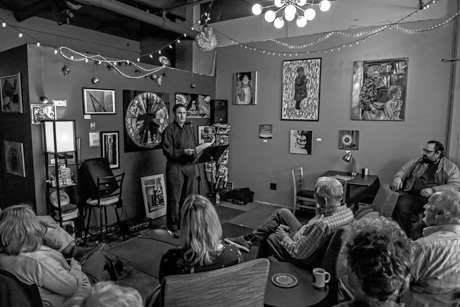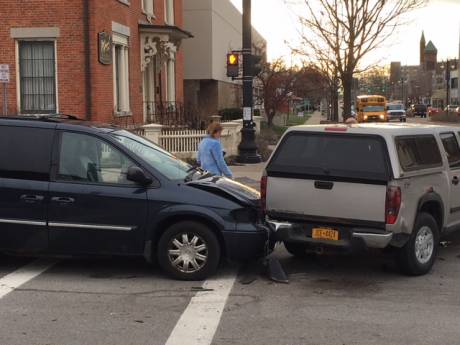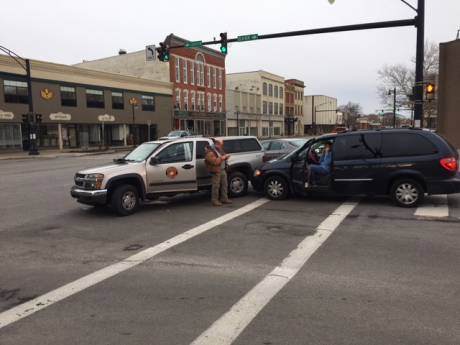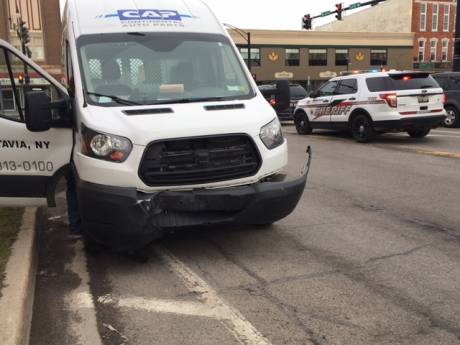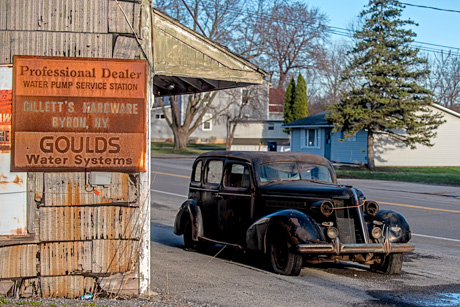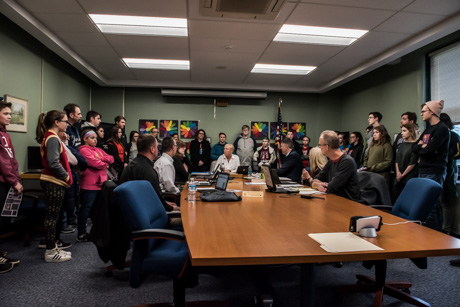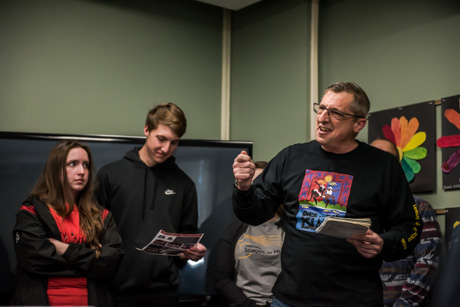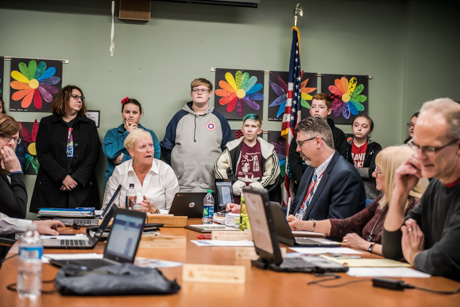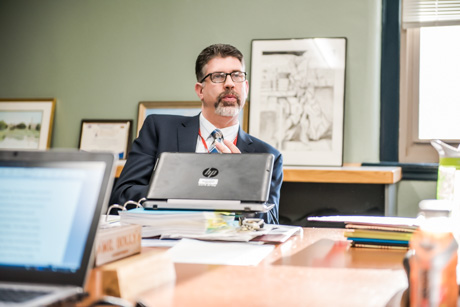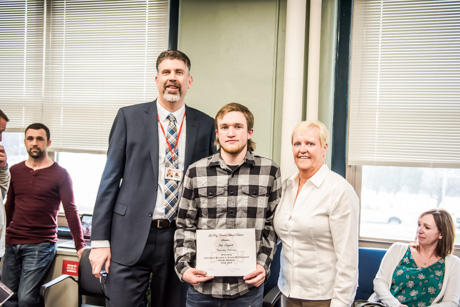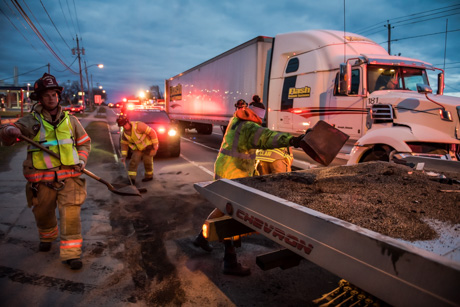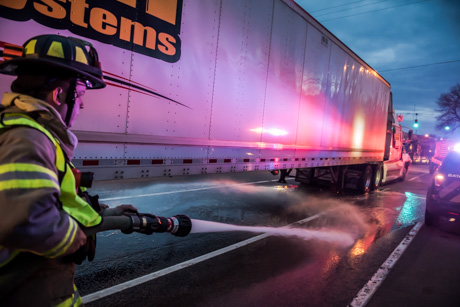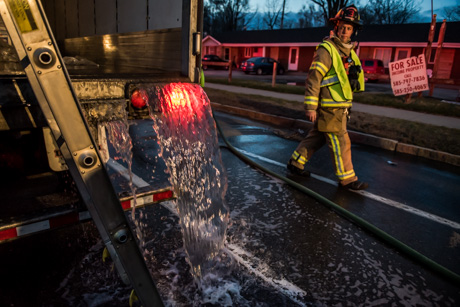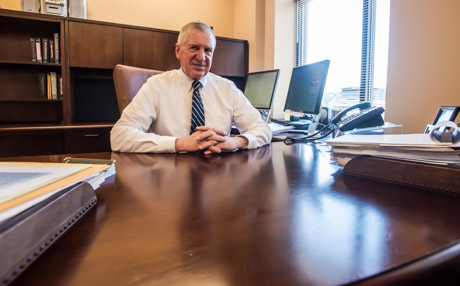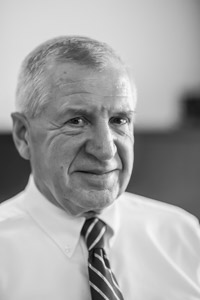Jerry Brewster likes to talk.
He could probably talk the tail feathers off a pheasant.
He's certainly talked a few people into admitting to things they would have rather have kept quiet, such as burglaries, rapes, arsons, and even murders.
Brewster said getting confessions is one of the most satisfying parts of being a criminal investigator, a job he's held since 1988 as part of a 44-year career with the Genesee County Sheriff's Office that ends this week.
"When I was actively investigating cases, I would get a lot of confessions and come Tuesday when there's a grand jury, I might be going into a grand jury four, five, six times talking about different cases that I investigated and they all had confessions," Brewster said. "I remember one day I was in there and at the end of the grand jury proceeding there is an opportunity for the grand jurors ask questions. After about the fifth time I was there one afternoon, ... the district attorney asked if there were any questions and a guy raised his hand and said, 'I don't have any questions (about the case) but I want to know, how does he get those people to talk to him?' "
How many confessions has Brewster coaxed out of reluctant suspects? He couldn't tell you.
"I just never thought about it," Brewster said. "I just don't know. I do what I do and then I move on. I never did the chalk-mark-on-the-wall kind of thing."
However many cases Brewster has cracked, it's surely not bad for a kid from Oakfield who was a math/science major with an eye on a career as a pharmacist when he got a job offer under the Comprehensive Employment Training Act program for an emergency dispatcher position.
He was 22 years old and had worked for Agway and Montgomery Ward.
"The economic situation being what it was, I was doing a balancing act in my mind," Brewster said. "You know, here's a job where the money and benefits are good or going into the unknown. I just had to go into the job at the Sheriff's Office. I didn't know if I was going to like it. It wasn't anything that I had thought about that much but it just kind of grew on me. And apparently, I must have had some skills or was somewhat adept at it so and it ended up being a good fit."
From dispatcher to deputy working in the jail, to road patrol, Brewster's early career moved on quickly.
Road patrol, that was something he liked. It wasn't long before he was promoted to sergeant. But it was also on road patrol where he discovered that he liked helping victims get answers but he also learned that the cases that took the most work -- usually felonies -- were often handed off to investigators.
Brewster was hooked both on helping victims and coaxing confessions when he helped an Oakfield resident, a person he knew, recover a stolen canoe.
"I only had a description of the canoe," Brewster said. "We didn't have serial numbers or anything like that. I happened upon a car over in Four Corners in Byron and here was a canoe that kind of looked like the one we were looking for, and I started talking to (the driver) about it and he had some answers that weren't quite adding up and eventually was I able to get a confession roadside from him."
That experience helped convince Brewster to accept a position -- even though it was a step down from sergeant -- as an investigator. Six years later, in 1994, Brewster was promoted to chief deputy in charge of investigations.
Patience, Brewster said, is the key to being a good investigator. You also need to be intelligent, educated, willing to listen.
"You have to be a good judge of character," Brewster said. "You have to be able to use the eyes in your head and your senses to try and figure out when somebody is not being truthful. Let's face it, in this position in this career that we have chosen, most people don't tell you the truth."
It's interesting, Brewster observed, that most parents teach their children to always be truthful, except when dealing with cops.
"You're in a backseat when dad gets pulled over for speeding and the first thing he says is, 'I wasn't speeding,' Brewster said. "So, it was OK to lie to the police and it kind of pervades today, which is OK. We understand. We're not angry about that. We just realize that most people, when we ask them the first time, they're not going to tell us the truth."
Early in Brewster's career as an investigator, he was called on to look into the death of a woman who was beaten to death inside her home on Route 77 in Indian Falls. After her death, her husband tried to take his own life. He didn't succeed and he was hospitalized. He was in critical condition at first and couldn't be interviewed. On Christmas Day, Brewster learned the man could finally talk so, taking time away from his family, he went to the hospital and interviewed the man for five hours.
He confessed to the murder.
"It was quite obvious that he was not being truthful because, on one hand, he would say he didn't remember and you'd ask him what was on television you could tell exactly what was on television," Brewster said. "So those sorts of things he seemed to remember OK. So we narrow this thing down. (Now it's) 'I remember everything that happened up until this moment' at which point it's a matter of working on that moment."
Much about investigating crime has changed since 1988. Back then, DNA evidence was new and uncommon. Now it's used in many cases. And of course, people didn't have cell phones that could be tracked, and certainly not phones that could easily take video. There was, in fact, very little video evidence. Now, Brewster said, it's hard to convince a jury a suspect did the crime without video evidence. Computers now also finding dots and connecting them much easier.
"Our capabilities are just tremendous," Brewster said. "In cars today, there are computers and they can tell us a lot of stuff about you and your car before an accident. We didn't have that before, or cell phones. They can tell us a lot of stuff.
"Of course, then you have the rights groups saying, 'well I don't want you to know where I go; I don't want you to know who I talk to or where I've been.' But if we need to, we get to work by valid search warrant, and we're doing a lot of search warrants these days, and we can get that information and we are using that sometimes to solve crimes or to exonerate people."
The key to solving any criminal case, Brewster said, is knowing who to look at as a person of interest. Once you determine that, you can figure out a possible motive and know what questions to ask.
"It makes my job a lot easier if I knew who to look at," Brewster said. "Sometimes I would have informants and I would tell them, 'look it, I don't want you to come forward and testify; I just want you to tell me who did it' and then I could start working and I might be able to find a witness who said they saw him there. If I don't know what to look at, it makes a lot harder. Fingerprints can do it. DNA is helping us. It's just like that guy pointing his finger back in the day. I needed to know who was most likely to have done it and then I could solve the case."
But the danger for any investigator, Brewster said, is to approach a crime with a preconceived notion. You can't put the pieces together if you don't see the whole picture. Tunnel vision can kill an investigation.
One of his roles as chief deputy, he said, was to listen to his investigators, let them paint a picture, and then tell them what they were missing.
"Maybe I have a little bit of a luxury as chief deputy because I have the investigators out there doing the digging and the interviews and they're coming back to me and telling you what's going on," Brewster said. "I'm already a little bit detached. Many times I haven't even been out to the scene so things will start clicking in my mind. I'm more of a visual person and if you describe what that scene looked like and then you start talking to me about it, even if I haven't been there, I can say, 'Yeah but what about that? Well, take a look at this. How do you explain what this guy said he saw?' And then they start questioning him. So that's one of the roles I see myself in here."
Brewster's other role, he said, is to stay on top of both changes in technology and in case law. That involves a lot of reading but he doesn't want to see a criminal case get crossed up because an appeals court has changed how evidence can be gathered and cases built.
If you're not current on case law, Brewster said, "you're fishing in the dark and you don't know what you might be doing wrong. What was OK six months ago isn't OK to do now. We need to know that because we might make that mistake."
Solving cases that don't run afoul of Constitutional protections for citizens is critical to good police work, Brewster said.
"If we can't do it legally there will always be another time," Brewster said. "If we don't have it, there will always be another time. For a police officer, time is always on our side. We just have to be patient. These guys that are screwing up will continue to screw up. If we don't get them somebody else will."
With that in mind, Brewster's advice to Joseph Graff, the next chief deputy in charge of investigations, is: read. Read a lot.
Also, be prepared for how demanding the job is. There is no downtime. When you go out with your family, your wife and kids need to be prepared to find their own way home because dad has to go to a crime scene. And the cases you get involved in can be draining emotionally.
"It's pretty hard to detach yourself emotionally from that we do," Brewster said. "That's the hardest part of the job."
That, and leaving the job at the door.
"You have a personal life, too, but when your job is chief deputy you're on the phone and you're working all the time," Brewster said. "There are things that need to be addressed around the clock, 24/7. I've been on call 24/7 since 1994 and it takes its toll on you. When I walk out that door at 4 o'clock, it's pretty hard to detach that. When you talk to the spouses and families of police officers they're all going to tell you the same thing. It's pretty hard for them to leave that at work."
What makes the job worthwhile, Brewster said, is helping people but sometimes even that isn't enough.
"I think that a lot of the things that we do, we have to put up a wall when we get there," Brewster said. "There may be all sorts of death and mayhem and all sorts of gruesomeness and we don't really see that. We're just there to do a job. But we do see how it impacts the people there and their families. We see that and it bothers us a little bit in the back of our mind and eventually, some of this does come back and, you know, it's like a profound sadness for all those people, all those things that you saw that you really couldn't help them with. Maybe you took care of the person that was responsible for causing all this death or mayhem but that doesn't really bring anyone back."
When you talk with Brewster long enough about criminal investigations, it's clear he's not all that ready to give up the work of solving crimes.
"I am going to miss it," Brewster said. "I'm going to miss getting up in the morning with a purpose in mind that I've got this interview, I've got this to do, we're going to get this general order in line for today, you know, those sorts of things. There's a feeling that I'm not useful anymore or valuable anymore but I'll get into it. I'll do fine."
Brewster, who has three adult children from his first marriage and two stepchildren from his second marriage, is 66 now and figures he'll tinker. He's got a new barn at his home in Alexander. He has a boat. He's going to renovate an old pickup for his stepson. There's a neighbor across the way who has an old car that hasn't run in years that Brewster figures he can get running again.
"I've got a lot of projects," Brewster said. "My wife is pretty good at giving me things to do, which I appreciate. I'm not going to be sitting around. Not at all. If I get bored I'll probably go find something to do."
One thing Brewster doesn't figure to do is sit around thinking about the cases he hasn't solved. You might think the unsolved murders would eat at him but he says that's not the case.
For one thing, many of them won't go unsolved much longer, he said.
Brewster listed off the open murder cases he expects will be closed soon: Bill Fickle, Kisha Sullivan, Anne Lee, Eddie Freson, and Deborah Maniace.
In some of these cases, DNA will play a role, perhaps, even, the use of family tree websites that match DNA among family members (used last year to arrest the suspected Golden State Killer in California). There is also new witness information in some cases. Perhaps there will even be a confession.
"As I'm going out of here there are some major developments coming in some of those cases already due solely to technology," Brewster said. "As I said, it's one of the things where you have to be patient. You are going to see something happening here. I think it will be everyone but one case we've got something, some poker's in the fire. Those cases aren't just sitting in a box rusting away and nobody is looking at them or thinking about them. If you go down the hall to each one of these guys, there are different cases that they're working beside a regular caseload.
"So, yeah, stay tuned."
Those cases, in fact, the whole investigative department, is being left in good hands, Brewster said, with Graff taking over.
"I'm walking out of here with a replacement for myself as the first guy that I've seen in the 20 some years that I've been doing this who I can say, 'Yeah he can take my place,' " Brewster said. "This place is not going to miss a beat with Joe Graff."
